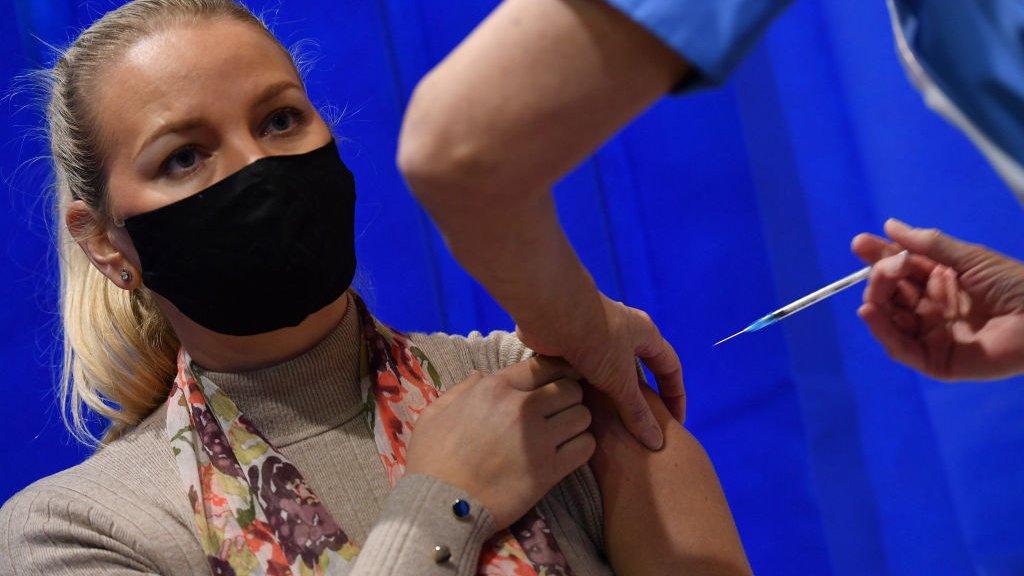Covid: NHS staff sickness has 'huge impact' on care
- Published
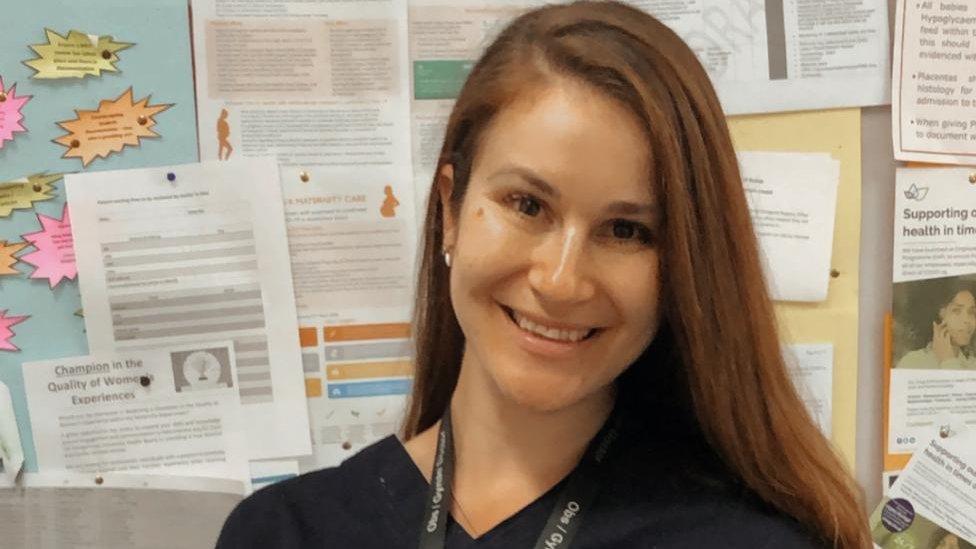
Dr Ceri Hayles said she still loved her job, but the strain was taking its toll
One in 10 staff at some Welsh health boards are off sick or self-isolating, BBC Wales has been told.
The NHS Confederation said staffing problems were having a "huge impact".
It said the overall NHS Wales absence rate was between 8% and 9%, but some services have up to half their staff absent.
Monthly absence rates in December are usually about 5%, but Aneurin Bevan, Cwm Taf Morgannwg and Betsi Cadwaladr health boards have rates of about 10%.
Welsh NHS Confederation director Darren Hughes told Wales Live the NHS was in "the same storm but different parts will definitely be in different boats", with absence rates higher in areas hit hardest by coronavirus.
"Covid patients are sicker during the second wave," says consultant
"We're seeing staff having to self-isolate because family members have got Covid, or people with caring responsibilities for people self-isolating, so it's having a big impact on the front line if you have one in 10 staff roughly off, but in some services a third or half the staff off," he said.
The Welsh Ambulance Service has 12.6% of staff off sick for all reasons. It said its absence rate was always historically higher than other services because of the nature of emergency work and its physical and emotional challenges.
Mr Hughes said there had been a "huge impact" on NHS activity, with staff shortages making things such as communication with patients' families harder.
"I think we're running at the moment - because it's much more difficult to provide the services we ordinarily would provide - at about 50 to 60% of capacity," he said.
"The staff would really like to be doing more than they are. But to provide services in this Covid-adjusted way is a huge challenge."
On Monday, Health Minister Vaughan Gething said there were 1,800 Covid-related patients in Welsh hospitals, the highest number recorded.
"We're seeing infection rates going up, and this is going to have a real serious impact on our ability to care for you at home, for your family," Mr Hughes added.
"But it's also having a big impact on the wellbeing of staff who've been working tirelessly for over eight months in providing care for people across Wales."
Helen Whyley, the director of the Royal College of Nursing Wales, called for action following the figures of self-isolating NHS staff
"It's clearly a very pressurised situation," she said.
"Staff are being asked to move from dealing with the first wave, administering vaccines, then the second wave, covering people, double shifts and they're becoming exhausted."
Mark Henwood, consultant at Hywel Dda health board, said staff are "desperate" for the public to follow coronavirus rules "certainly over the Christmas period".
Mr Henwood also said people should "avoid" coming to hospital if they could, following an appeal from the health board for public support to reduce pressure on hospitals.
Last week, Llandovery community hospital closed after Covid outbreaks meant several staff from there and Amman Valley hospital in Ammanford had to self-isolate.
On Tuesday, staff at Morriston Hospital said a "perfect storm" was developing with the combination of increasing numbers of patients, decreasing capacity and fewer staff.
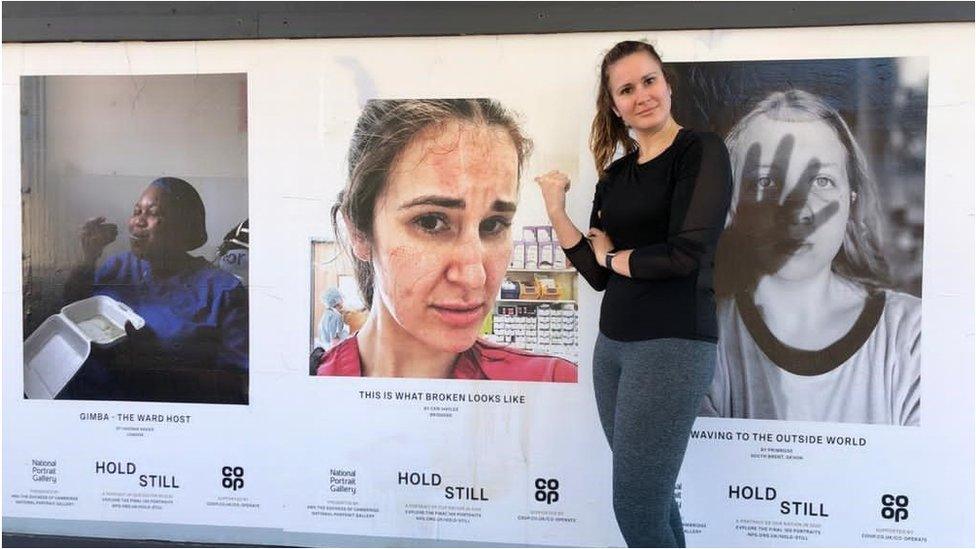
A photo of Ceri Hayles showing the effects of protective equipment on her face was used in an exhibition
Dr Ceri Hayles - a registrar in obstetrics and gynaecology at the Grange Hospital in Cwmbran, Torfaen - said staff were "spread thinner" than usual.
"We're sort of backed into a corner where we don't have any option because we never want to put our patients in a position where they're not being looked after safely.
"The service is still being provided, but there is a little bit less time to do all those extra things you'd want to do for people.
"Those bits where you go above and beyond for people which we all try and do. It's just draining and we're all exhausted."
'A black hole'
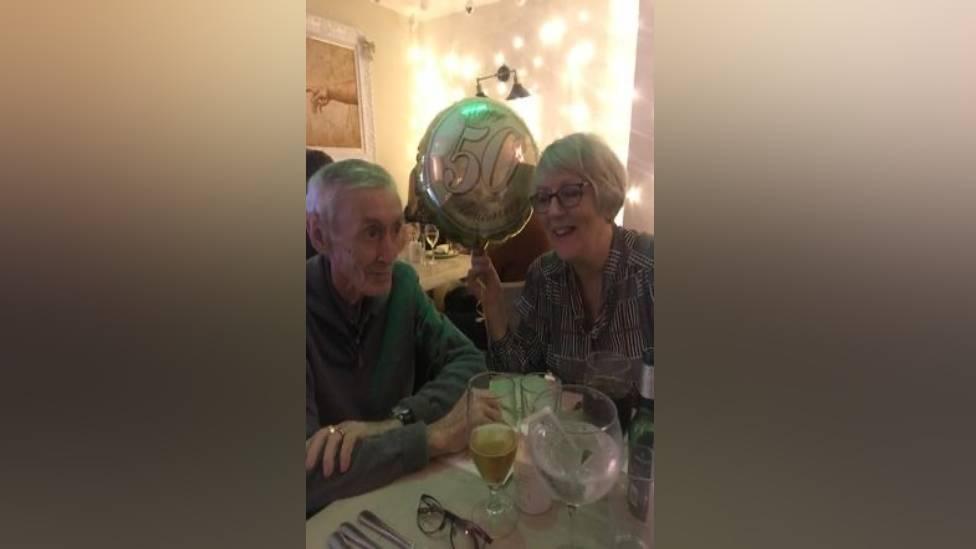
Gail Parry said staffing levels led to poor communication about her husband's care
Gail Parry's husband David, 72, has emphysema and was in Nevill Hall Hospital in Abergavenny, Monmouthshire, last week.
Mrs Parry, a retired psychiatric nurse, believes staff being overstretched led to poor communication with her about her husband's treatment and the plan for him to return home for palliative care.
"When he ended up on the ward I tried and tried phoning with no response. I knew very little about what was going on.
"It's very distressing and it was distressing for him, because he wanted to come home and I felt as if I was doing nothing to help the situation, because I couldn't find anything out.
"So it was a bit of a black hole as far as knowing things or being able to communicate with him, really."
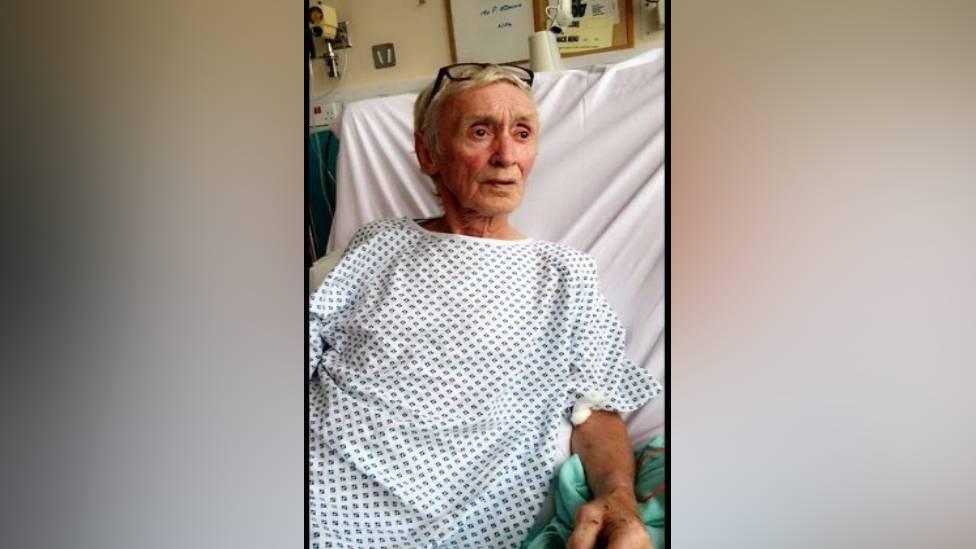
A lack of communication was "distressing" for patient David Parry and his wife Gail
Aneurin Bevan health board said: "We would like to apologise to Mrs Parry and her husband for their experience whilst Mr Parry was in Nevill Hall Hospital last week.
"We appreciate the worry that is caused when a loved one is in hospital and the extra stress that is caused when communication is not as we would expect it to be.
"The hospital is under significant pressure but the protection of patients and staff is our absolute priority."
- Published9 December 2020
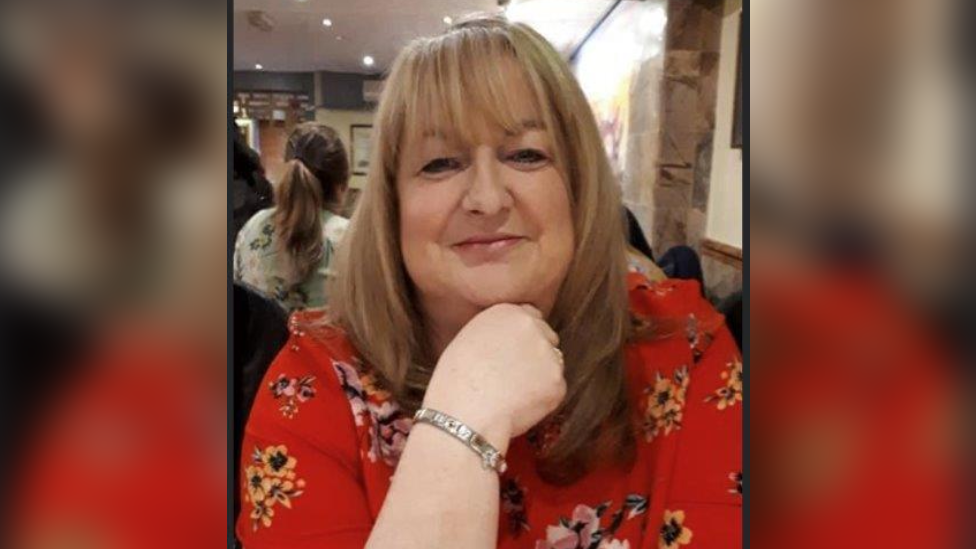
- Published7 December 2020
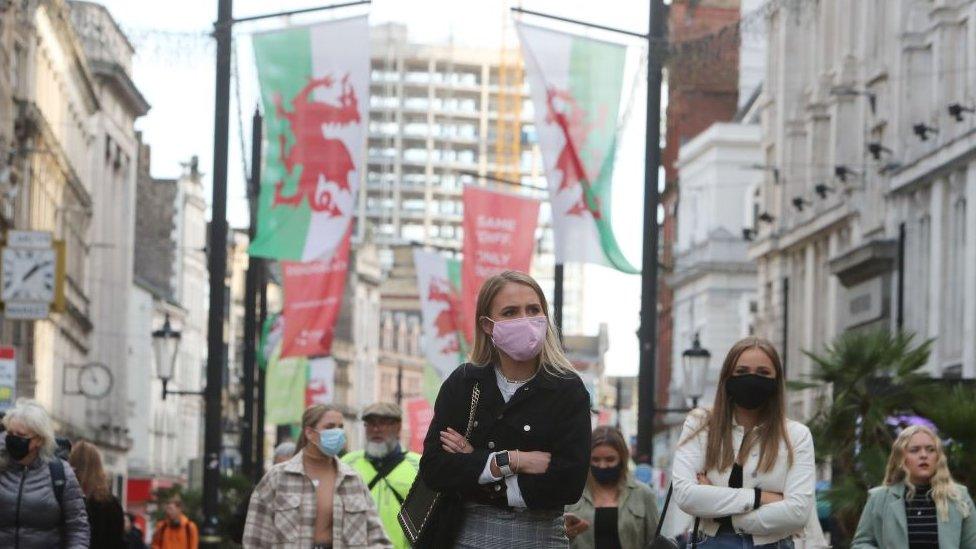
- Published8 December 2020
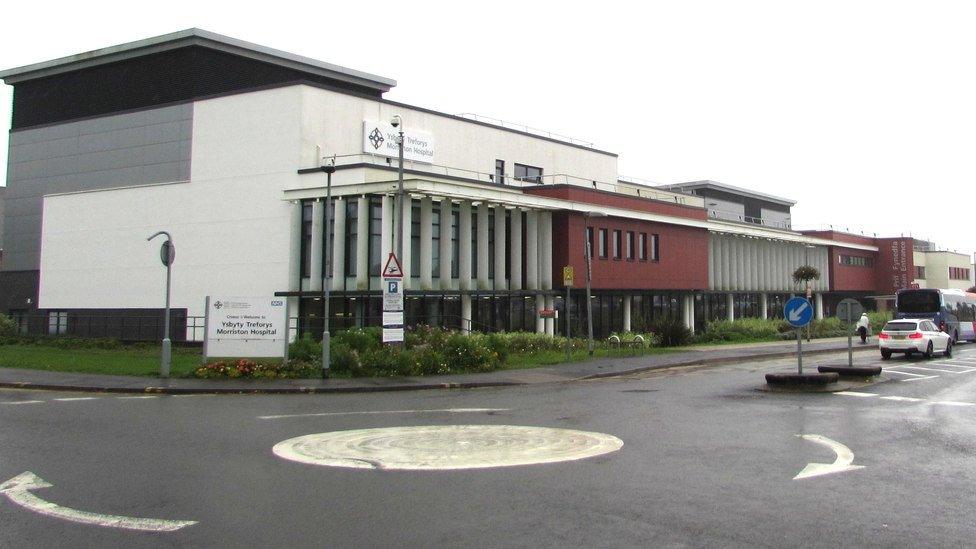
- Published7 December 2020
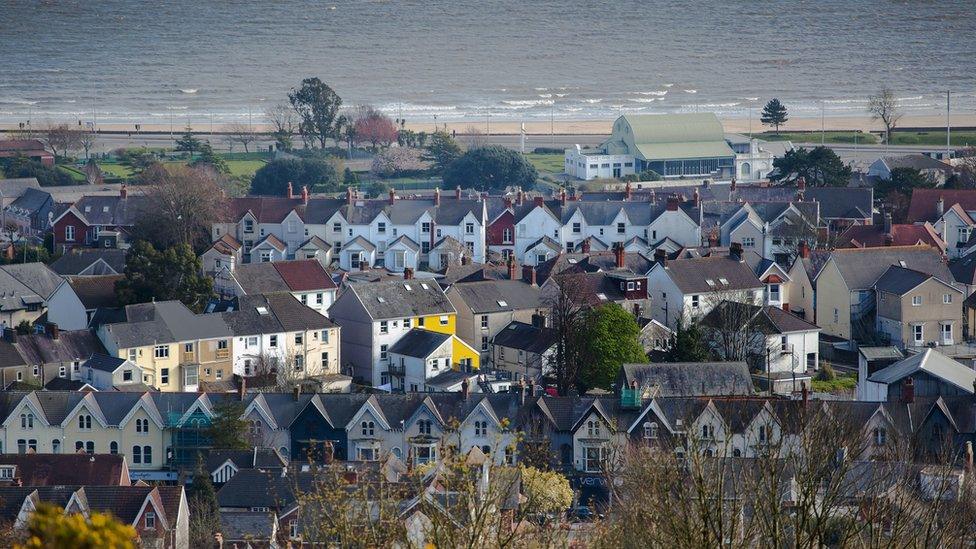
- Published21 September 2020
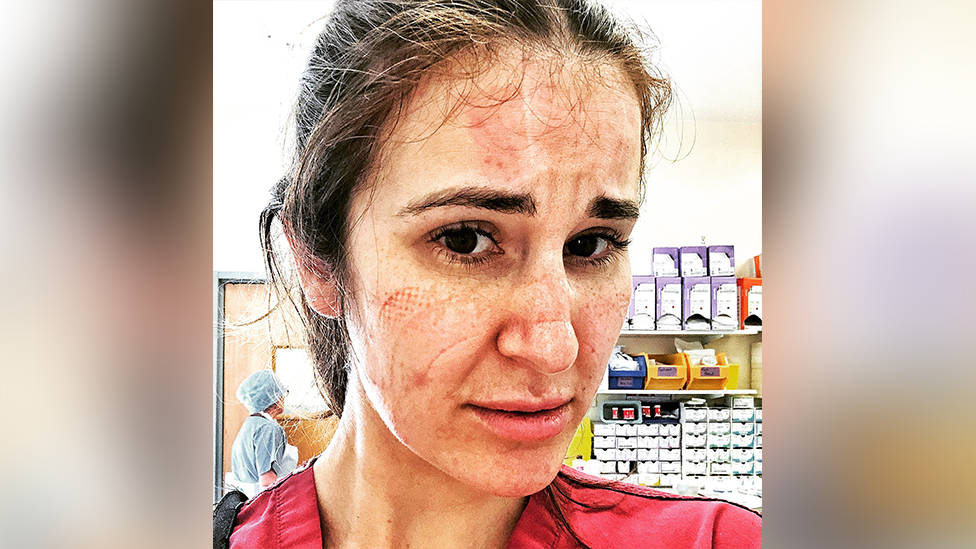
- Published2 December 2020
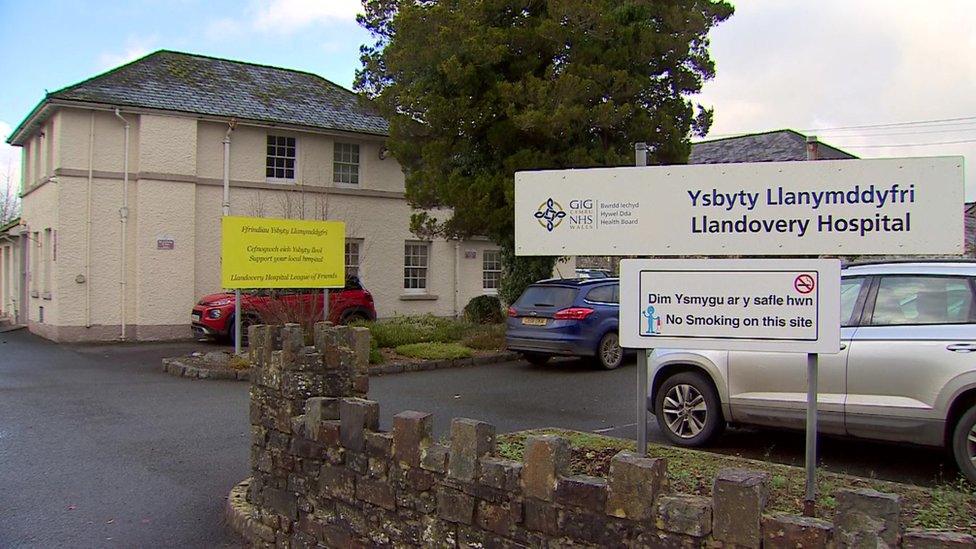
- Published8 December 2020
